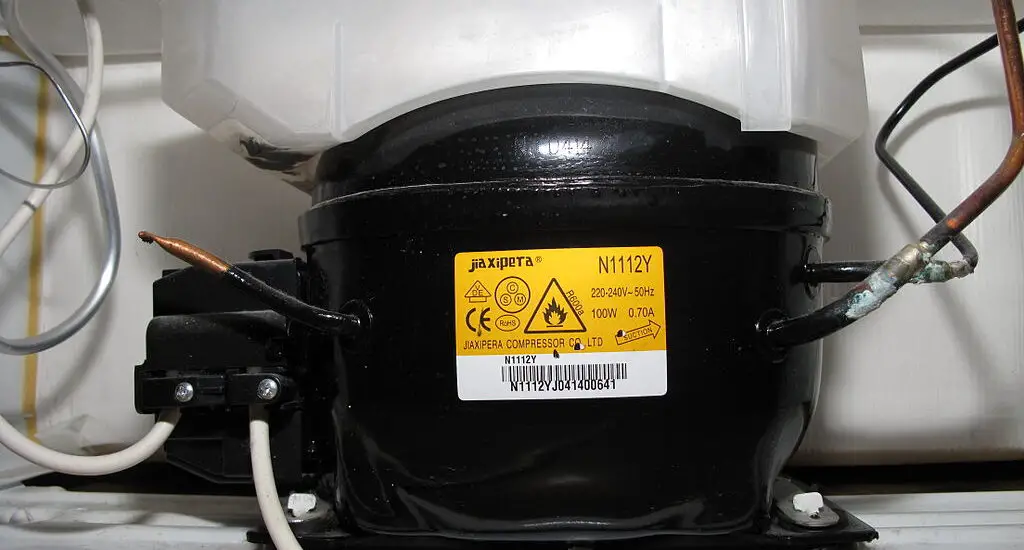When it comes to the heart of your cooling system, refrigeration compressors don’t mess around. Think of it this way: without the heart, where would your body be? Stuck in a heap, that’s where! But hang on, do you know how these heartthrobs really stack up against each other? We’re about to run a refrigeration compressor comparison so you can know your options.

Table of Contents
Understanding Refrigeration Compressors
A refrigeration compressor is like the workhorse in your cooling system, tirelessly chugging along. It compresses the refrigerant, turning it from a low-pressure gas to a high-pressure one, which causes it to heat up. This is the first step in the cooling process.
Types of Refrigeration Compressors
Now, let’s chat about the different breeds of workhorses, or in this case, compressors. Some of the big names in the field are Reciprocating, Rotary, Screw, and Centrifugal. Each has its own perks and quirks. Keep reading, we’ll get into the nitty-gritty soon!
Factors Affecting Refrigeration Compressor Selection
Before you make your refrigerator compressor selection, here are some factors to consider.
Refrigeration Capacity
How much cooling power do you need? Your compressor needs to handle it all. A little apartment fridge or a giant walk-in cooler for a restaurant? It’s a big factor in the compressor selection game.
Energy Efficiency
Next up, we have the “going green” factor. Energy efficiency isn’t just good for your wallet; it’s good for our planet. How much energy will the compressor consume to get the job done? More efficiency, less cost.
Durability and Maintenance
Who loves frequent maintenance and a short lifespan? No one, right? So, your compressor should be robust and need minimal upkeep. Remember, we’re going for the long haul here.
Cost Considerations
Money matters, folks! The upfront cost is important, but also consider the operating costs over time. Getting the right balance is key.
Check out these other related articles…
Compressor Performance Curve: Your Ultimate Guide
Compressor Isentropic Efficiency Formula: An In-Depth Guide
What is Compressor Efficiency? Everything You Need to Know
Compressor Polytropic Efficiency Formula: A Detailed Guide
Compressor Performance Test: Your Handy Guide
Refrigeration Compressor Comparison
As we said at the start of this article, there are different compressor types. Now, it’s time to compare them and see which one is best for you.
Reciprocating Compressors vs. Rotary Compressors
Reciprocating compressors are like that reliable old car you’ve had forever. They’re steady and get the job done. Rotary compressors, on the other hand, are like sports cars – they’re fast and more efficient.
Energy Efficiency
While the reciprocating model can be less energy-efficient, the rotary one is often much better on this front. It’s like comparing a gas guzzler with a hybrid.
Durability and Maintenance
Despite their energy draw, reciprocating models are hardy beasts. Rotary models, though efficient, might require a bit more TLC.
Screw Compressors vs. Centrifugal Compressors
Screw compressors are heavy-duty players, suited for constant, high-demand situations. They’re like a delivery truck that runs 24/7. Centrifugal compressors, however, are the jumbo jets of the bunch, capable of handling serious capacities, but they might be overkill for smaller jobs.
Energy Efficiency
When comparing fuel efficiency, screw compressors fall a bit short when compared to their jumbo jet counterparts. Centrifugal compressors, although large, can be surprisingly energy efficient for their size.
Durability and Maintenance
The rugged delivery truck, our screw compressor, is built to last with lower maintenance needs. The jumbo jet, the centrifugal compressor, while robust and efficient, can be more demanding in maintenance.
Refrigeration Compressor Comparison Chart
Now, this is where we lay it all out for you. A refrigeration compressor comparison chart is akin to a battlefield map, giving you an eagle-eye view of the terrain. In this chart, you’ll find each type of compressor—Reciprocating, Rotary, Screw, and Centrifugal—lined up for a face-off. But don’t worry, we aren’t starting a war here; it’s all in good spirit!
Let’s break down the key metrics that we are comparing:
- Functionality and Performance: This row details the core operation and the efficiency of each compressor. It’s like checking the horsepower and acceleration of a car before you buy it. How much cooling can each type provide? How fast can it reach its maximum efficiency?
- Energy Efficiency: Here, we show how much bang you get for your buck, energy-wise. This is the row where we reveal which compressors will keep your energy bills from skyrocketing.
- Durability and Maintenance: Nobody wants a system that spends more time in repair than in action. This row helps you to understand the durability of each type and how often you’ll find yourself calling the maintenance crew.
- Cost: The final and crucial point of comparison. Here we list out the initial costs and the running costs for each compressor. This is where you figure out if that super-efficient compressor is worth the upfront investment.
So, picture all of this information laid out in a clear, easy-to-read chart. It’s like having a cheat sheet for your refrigerator compressor homework. The compressor comparison chart is there to provide a quick, comprehensive, and straightforward way for you to evaluate your options. Remember, knowledge is power and the right compressor can make all the difference in your refrigeration needs.
Tips on Selecting the Right Refrigeration Compressor
Choosing a compressor is a bit like choosing a new car. You need to consider your specific needs, budget, and preference. Do you need a reliable family car, a fuel-efficient hybrid, a heavy-duty truck, or a jumbo jet? Your choice should be driven by your specific cooling requirements, budget constraints, and energy efficiency goals. No matter which compressor you choose, ensure it’s a reputable brand for quality assurance and peace of mind.